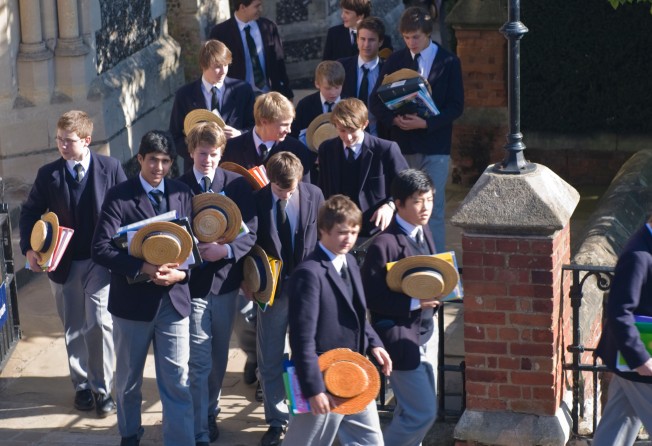
How to pick the best British boarding school for your child – and make sure it is the real thing
Some schools are exclusively full boarding and others have lower ratios of boarders to day students. School experts share their tips on how to ensure your child doesn’t end up lonely, homesick and the only full boarder in their house

British boarding schools continue to be a popular option for families in Hong Kong and China – the 20 plus schools, consultancies and colleges that exhibited at the recent British Boarding Schools Fair in Hong Kong are testament to this. But how do you know you’re choosing a proper boarding school experience for your child?
Some British schools describe themselves as a boarding school, and they are. When we inquired about a prospective school for our daughter, we were told there would be other boarders starting in her house, in her year and at the same time as her.
As an expat family living thousands of miles away, this was important to us, alleviating worries that she would be lonely and homesick. She was devastated when she discovered – on arrival – that she was the only full boarder in her year in her house. And as such, she felt very lonely, and even further away from home.

So how do you choose a “proper” boarding school, where your child won’t be the odd one out, left out, because they don’t or can’t go home at weekends?
Dominic Moon, of the UK Boarding Schools Guide, says the list of truly full boarding schools is almost non-existent. Of the 200 schools the guide represents, a handful offer full boarding as the only option.
Ralph Lucas, editor-in-chief of The Good Schools Guide, says it’s hard to tell whether a school is exclusively full boarding, “without trawling through reams of text”. High boarding percentages is a fair indicator that full boarding numbers are good. Those with majority full boarders – more than 95 per cent – include Eton, Harrow, Oundle and Uppingham.

Moon says that there are some safeguards that may help a parent to ascertain how empty a boarding school might become at weekends.
“For example, if you look for a school that teaches on Saturdays, then this creates a more active weekend environment and effectively guarantees you more pupils for the weekend.”
My daughter did Saturday school, but it isn’t always enough. There’s still Sunday, which can feel very long when you’re on your own.
“Parents can ask the school how many pupils are around all weekend so that they get an idea of what to expect, and if you have a tour of the school given by pupils, they tend to be quite honest about the atmosphere at weekends. Even if these pupils have been told what to say they still give an honest account of the school,” Moon says.
Many schools that were once predominantly full boarding – or boarding and day (as Oundle still is: 860 full boarders and 250 day pupils) without any of the in-betweeners, have morphed over the years into something that is less clear, compromised by weekly and flexi arrangements.
Schools must, of course, be mindful of numbers; it’s how they survive. How, then, does a school accommodate the demands of all sorts of parents, and the needs of myriad children?

Harrow – all boys, 820 full boarding ones – is one of very few schools in Britain which has resisted the urge – or need – to resort to offering day, weekly and flexi boarding.
“We are one of a very small number of full boarding schools that do not take day pupils or weekly boarders,” a school spokesman says, “which means that we avoid the tensions that arise when some pupils go home at the end of the day while others do not. Furthermore, at the weekends we can lay on a full programme of activities in the knowledge that all boys are able to participate.
“It is very hard to have a play practice or sports tournament if pupils are missing. There are more organised activities at Harrow on a Sunday than at any other similar school.”
That is not to say there is no parental contact during term time. “Parents are encouraged to come to the school whenever they can to support matches, plays and concerts,” he says.

But in schools whose numbers dwindle at weekends, is there still the same emphasis on occupation? “There has always been a lot of incentive for schools to fib about weekends,” Lucas warns.
He suggests parents get a firm idea of the sort of thing they want to be going on at weekends. “Get numbers [of who does what at weekends, of which weekends] and visit the school when full boarders are there to chat to. If weekends are great they should tell stories about them without being prompted.”
Wallis adds: “Parents should not be afraid to ask the school directly how many children in your child’s prospective year group were in school last Sunday – and then ask if it would be possible to speak to one of the parents of one of those children so you can get to the nitty gritty.”